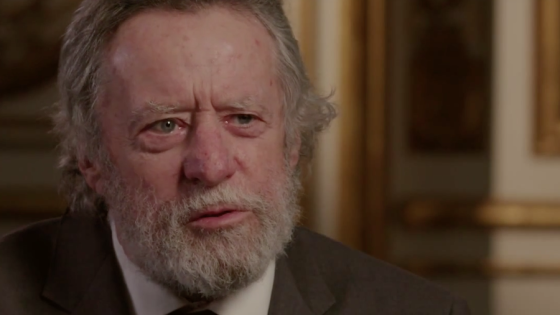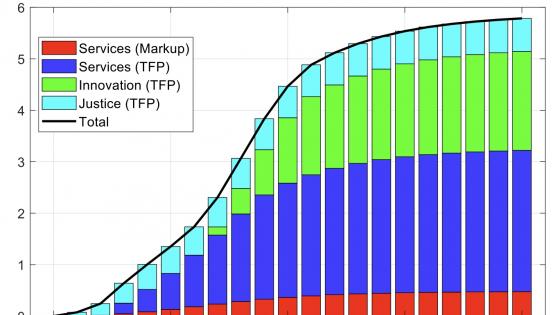Lance Taylor, who passed away in August 2022, was one of the two heroes of my graduate school experience at MIT (Jerry Hausman was the other). As I said in an addendum to an article that Ardeen Kreeger and I wrote for History of Political Economy on the desegregation of MIT’s PhD programme in Economics: “Lance Taylor was my dissertation supervisor. He was remarkably receptive to my unorthodox interests and allowed me fully to develop the topics that excited me. In a fundamental sense, he protected my passions.” (Darity and Kreeger 2014)
I will go further. Lance enabled me – and several others, including Amitava Dutt, Maud Naroll, Eduardo Amadeo, and Sweder van Wijnbergen – to pursue some fairly unconventional interests in the context of MIT economics in the 1970s. He extended his personal spirit of independence and desire to make economics a just science to supporting those of us who sought to depart from pre-ordained paths.
Ultimately, I produced a three-essay dissertation. The first challenged the Samuelson-Modigliani projection from Luigi Pasinetti’s model of growth and the functional distribution of income that the working class would own the entire capital stock in the long run. Working primarily with two-dimensional phase diagrams, I was, de facto, siding with the UK side of the Cambridge-Cambridge debates (Harcourt 1972). Slightly later, Lance would write what I view as the definitive treatment of the dynamics of the Pasinetti system in all of its ramifications (Taylor 1995).
My second dissertation essay was a three-region (Africa, the Americas, and Europe) model of the trans-Atlantic slave trade, embodying ideas on the nexus between slavery and European industrialisation present in the works of Eric Williams, Walter Rodney, and CLR James, whom I dubbed ‘the Caribbean School’. The final essay was an attempt to formalise Ester Boserup’s contra-Malthusian theory of agricultural growth under ‘primitive’ technical conditions; that is, prior to machinery and chemical fertilisers.
Lance always encouraged formalisation, giving mathematical structure to economic models originally presented in narrative fashion, not just to flash weaponry but to draw out the full implications of a theory. He insisted not just in critiquing theories that he thought were incorrect; he always was determined to construct alternatives.
Therefore, when he stood in fierce opposition to the IMF’s structural adjustment programmes, characterised by a quid pro quo for IMF loans of lower exchange rates and drastic reductions in government spending, he did not just complain loudly. He developed an alternative scheme of macroeconomic analysis, with a particular relevance to developing countries, which he labelled structural macroeconomics (Taylor 1983, 2004). His framework demonstrated that the standard package of IMF requirements would induce recession and substantial increases in inequality and deprivation in the countries where implemented.
Many years later, as I undertook my personal journey to develop a distinct approach to understanding intergroup disparities in income, wealth, and wellbeing – stratification economics (Darity 2022) – I frequently am asked what the implications are for macroeconomic analysis. I now realise the implications already had been realised in Lance’s work that firmly tied the functional distribution of income to aggregate economic performance.
It is only a short step from the functional distribution of income to the racial distribution, a step taken explicitly by Romie Tribble (1996). Stephanie Seguino, Nilufer Cagatay, Korkut Erturk, and Caren Grown connected the functional distribution of income to the gender distribution under the gender and macroeconomics initiative that evolved in the 1990s.
In short, Lance pre-emptively gave us the gift of macroeconomics for stratification economics in the form of structural macroeconomics.
He also had a near obsession for getting national accounts just right. Underpinning structural macroeconomics was a finely honed attentiveness to aggregate balance sheets. I speculate, without proof, that Lance’s stress on macro financial accounts influenced the emergence of Modern Monetary Theory. Certainly, Lance’s research had a direct impact on the construction of social accounting matrices.
In addition, Lance was one the architects of the design and execution of computable general equilibrium (CGE) models, valuable for simulating the effects of monetary and fiscal policies across industrial sectors and human lives. In all of his work, Lance always combined an appreciation for complexity with the aim of demystification.
I recall Lance’s deep dedication to his PhD students. Those of us working with him could drop off a set of notes with scribbled calculations or thoughts in his mail slot in the morning, and we would have his detailed reaction back the same day in the afternoon. I also recall visiting his office for the first time and discovering that he had a hammock installed where he frequently could be found reading the latest academic paper that caught his attention.
Lance set off some shock waves across the profession when, as a full professor, he left MIT, the department at the apex of the profession, to take a position at the New School. The New School had a distinguished faculty in its own right but somewhat marginalised because of their commitment to heterodoxy. Lance found the New School to be a far more supportive and inspiring environment for the work he was doing in the final thirty years of his life. His collaboration with Duncan Foley on climate change, growth, and sustainability led to their recognition as recipients of the Leontief Prize in 2015.
In a memorial statement Bill Milberg, chair of the New School’s Department of Economics, showed that Lance’s dedication to graduate students continued apace after his move, “At [the New School] Lance mentored a generation of students who are now among the leading heterodox economists in the world, including Nelson Barbosa, Laura Carvalho, Michalis Nikiforos, Özlem Ömer, Ute Pieper, Codrina Rada, Armon Rezai, Daniele Tavani, Matias Vernengo, Rudi von Arnim, and many others.”
Lance Taylor was a valued mentor, a cherished friend, and a remarkable scholar. Severe illness took him away too soon, but those of us who knew Lance will revere the times we shared with him.
References
Darity, W (2022), “Position and Possessions: Stratification Economics and Intergroup Inequality”, Journal of Economic Literature 60(2): 400-26.
Darity, W, and A Kreeger (2014), “The Desegregation of an Elite Economics Departments PhD Program: Black Americans at MIT”, History of Political Economy 46(Supplement 1): 317-36.
Harcourt, G C (1972), Some Cambridge Controversies in the Theory of Capital, Cambridge University Press (and see “Geoff Harcourt: A Cambridge economist and an Australian patriot” on VoxEU).
Taylor, L (1983), Structuralist Macroeconomics: Applicable Models for the Third World, Basic Books.
Taylor, L (1995), “Review: Pasinetti's processes” (Reviewed Work: Structural Economic Dynamics: A Theory of the Economic Consequences of Human Learning, The Dynamics of the Wealth of Nations: Growth, Distribution, and Structural Change by L Pasinetti, M Baranzini and G C Harcourt), Cambridge Journal of Economics 19(5): 697-713.
Taylor, L (2004), Reconstructing Macroeconomics: Structuralist Proposals and Critiques of the Mainstream, Harvard University Press.
Tribble, R (1996), “The Kuznets-Lewis process within the context of race and class in the U.S. economy”, International Advances in Economic Research 2: 151-64.



